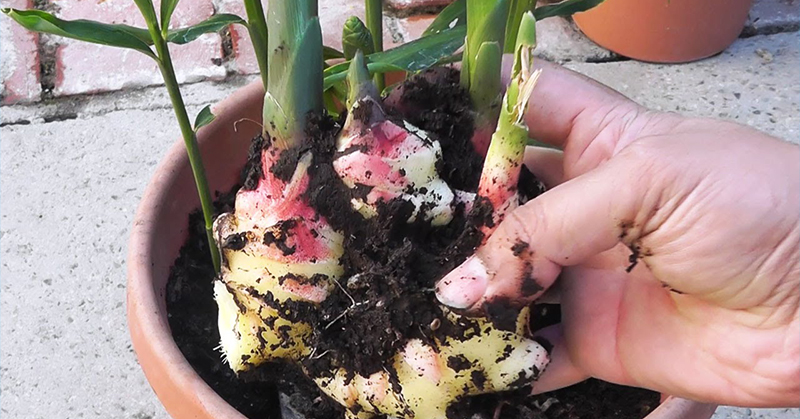Ginger is a flowering plant loaded with nutrients and bioactive compounds that hold incredible benefits for your physical and mental health. Its medicinal use dates back thousands of years to ancient China. The rhizome of the plant is the root that is typically used in cooking and medicine. (1)
Using natural remedies for common ailments can be an effective alternative to prescription medication. Ginger is an incredibly useful form of medicine, treating conditions ranging from poor digestion to inflammation, and heart disease. But it can be dangerous to some people. If you have any of these conditions, you need to stop using ginger immediately.
1. Underweight people
Ginger is known to aid weight loss for patients with diabetes, obesity, and hypoglycemia. A study found that treatment with ginger extract produced significant reductions in body weight and lipid levels. (2)
Ginger increases the pH of the stomach and stimulates digestive enzymes for its high fiber content. (3) When the body efficiently processes bulky elements of ingested foods, weight loss can result.
However, for people with a low body mass index (BMI) who could be undernourished or underweight, suppressing appetite and fat removal can lead to dangerous health conditions such as poor muscle mass, hair loss, menstrual irregularities and vitamin deficiency. If your doctor has told you that you need to gain weight, then reduce or eliminate ginger from your diet.
2. People with a blood disorder
Hemophilia is a rare genetic disorder in which the ability of blood to clot is severely reduced, meaning the sufferer could bleed severely from a minuscule injury.
Ginger stimulates blood circulation, which is important for most people, particularly those who suffer from peripheral artery disease, diabetes, obesity or Raynaud’s disease.
Not only can the plant nullify the effects of life-saving medication, but also the overstimulation of blood circulation in hemophiliacs can lead to severe and sometimes deadly hemorrhaging. (6)
3. People who take certain medications
If you suffer from high blood pressure or diabetes and take medications for your condition, ginger is known to change the way the drugs you need react with your body. Specifically, beta-blockers, anticoagulants, and insulin drugs can be very dangerous to mix with ginger. (7)
The reason for these dangers is that ginger can lower blood pressure and stimulate blood thinning, which can interact with prescription medications with unfavorable results.
An Alternative for Ginger Lovers
If you love your ginger fix, don’t worry! There are many alternatives that nutritionists recommend (8) such as cayenne pepper, red paprika, and sweet peppers. They can be added to dishes and beverages to add that kick of spice to your taste buds.
Conclusion
Ginger is a very healthy form of medicine for the majority of people when consumed in moderate amounts. It’s great to throw into our cup of tea when we’re feeling under the weather, it gives a delicious tang to our stir-frys and soups, and it can really boost our immune systems, fight infection and relieve pain. But people in specific medical situations should always consult a doctor and do their research before using alternative forms of medicine and herbal or dietary supplements.
If using ginger is safe for you, try out this Ginger Root Extract Powder! Ginger comes from the same botanical family as cardamom and turmeric and has been used for thousands of years. The rhizome contains gingerol, a bioactive compound with antioxidant and anti-inflammatory effects.
Sources
- Bode, A., & Dong, Z. (2011, May 28). The Amazing and Mighty Ginger. Oxidative Stress and Disease Biomolecular and Clinical Aspects, Second Edition Herbal Medicine, (2), 131-156. doi:10.1201/b10787-8
- Stranahan, A. M., Martin, B., & Maudsley, S. (2012, December 01). Anti-Inflammatory Effects of Physical Activity in Relationship to Improved Cognitive Status in Humans and Mouse Models of Alzheimers Disease. CAR Current Alzheimer Research, 9(1), 86-92. doi:10.2174/156720512799015019
- Fugh-Berman, A., Lione, A., & Scialli, A. R. (2005). Do No Harm: Avoidance of Herbal Medicines During Pregnancy. Obstetrics & Gynecology, 106(2), 409-410. doi:10.1097/01.aog.0000173415.38704.0e
- Thomson, M., Corbin, R., & Leung, L. (2014). Effects of Ginger for Nausea and Vomiting in Early Pregnancy: A Meta-Analysis. The Journal of the American Board of Family Medicine, 27(1), 115-122. doi:10.3122/jabfm.2014.01.130167
- Pruthi, R. K., Schmidt, K. A., Slaby, J. A., & Rodriguez, V. (2007). Platelet dysfunction induced by herbal supplements in a patient with mild hemophilia A. Journal of Thrombosis and Haemostasis, 5(12), 2556-2558. doi:10.1111/j.1538-7836.2007.02765.x
- Ginger Substitutes. (2015, November 09). Retrieved November 07, 2016

